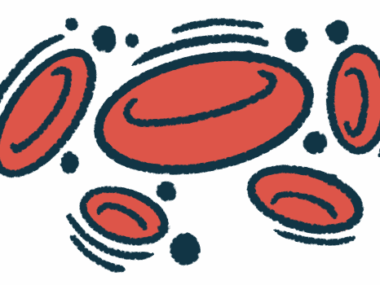Danicopan, now Voydeya, approved in Japan as add-on PNH treatment
In US and EU, Alexion oral therapy under review by regulatory authorities
Written by |

Danicopan has been approved in Japan as a first-in-class, add-on therapy for people with paroxysmal nocturnal hemoglobinuria (PNH) who have an insufficient response to treatment with C5 inhibitors.
Its developer Alexion, AstraZeneca Rare Disease will be marketing it under the brand name Voydeya, the company announced in a press release.
The oral therapy is now under review by regulatory authorities in the U.S. and the European Union.
“Voydeya, as add-on to standard-of-care, is a testament to our determination to address the needs of those impacted by clinically significant EVH [extravascular hemolysis] without disruption to proven therapy,” said Marc Dunoyer, CEO of Alexion.
According to the company, this is the very first regulatory approval granted in Japan for a PNH treatment to be used in adults, in combination with C5 inhibitor therapy, for the rare acquired disease, whose hallmark is the destruction of blood cells.
“We look forward to bringing this important advancement to the subset of PNH patients in Japan who are living with this condition,” Dunoyer said.
Voydeya can be used with Ultomiris or Soliris to treat PNH
In PNH, a group of immune proteins called the complement cascade become abnormally activated to destroy blood cells.
The first treatments for PNH to win widespread approval — Ultomiris (ravulizumab) and Soliris (eculizumab) — both work by targeting a complement protein called C5 to stop complement activation. Both therapies also are marketed by Alexion.
“More than 20 years of PNH research has cemented the role of C5 inhibition in effectively treating this rare disease,” Dunoyer said.
C5 inhibitors are generally very effective for controlling PNH. They work particularly well in limiting intravascular hemolysis, or IVH, which occurs when red blood cells are destroyed within blood vessels.
But per Alexion, about 10% to 20% of PNH patients on C5 inhibitors will continue experiencing clinically relevant extravascular hemolysis, or EVH, in which red blood cells are destroyed outside blood vessels. Continued EVH can make it hard to control PNH symptoms like anemia.
“C5 inhibition has transformed care for PNH and is proven to control IVH, prevent complications and improve survival. A small subset of patients treated with C5 inhibitor therapy may experience signs or symptoms of clinically significant EVH,” said Jun-ichi Nishimura, MD, PhD, a professor at Osaka University Graduate School of Medicine, in Japan.
The newly approved therapy works to target and block a different complement protein, called factor D. By doing so, the therapy aims to help control EVH, while also not interfering with C5 inhibitors that control IVH.
[Voydeya’s approval] has the potential to improve outcomes for those experiencing the burdensome manifestations of EVH while continuing treatment with standard of care.
Voydeya’s approval by Japan’s Ministry of Health, Labor and Welfare was based primarily on data from a Phase 3 clinical trial called ALPHA (NCT04469465). The study enrolled 86 adults with PNH who were experiencing clinically significant EVH despite treatment with Soliris or Ultomiris.
For the first 12 weeks, or about three months, of the study, the participants were randomly assigned to take Voydeya — at an initial dose of 150 mg — or a placebo three times daily, given on top of continued treatment with Soliris or Ultomiris. Then, all participants were given add-on treatment with Voydeya for the remainder of the study.
The findings from the first part of the study showed that Voydeya was able to increase the levels of hemoglobin, which is the protein that carries oxygen inside red blood cells. Further long-term data showed this effect was sustained out to nearly a year of treatment. Patient-reported outcomes also indicated the use of the add-on therapy improved patients’ life quality and eased fatigue.
“In the ALPHA trial, Voydeya as an add-on to Ultomiris or Soliris improved haemoglobin levels and reduced the need for transfusions, while maintaining control of IVH,” Nishimura said.
The most common side effects that arose during treatment with Voydeya in the ALPHA study included headache, nausea, diarrhea, and joint pain. The therapy was generally considered to be well tolerated, with no new safety concerns reported.
Based on trial findings, Nishimura said that the approval of Voydeya in Japan “has the potential to improve outcomes for those experiencing the burdensome manifestations of EVH while continuing treatment with standard of care.”






